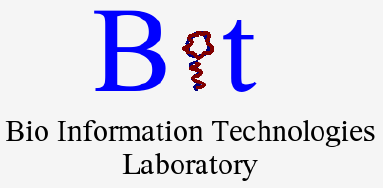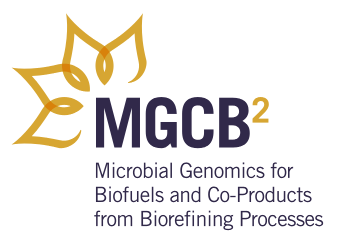 |
Services and Collaborations |
The basic bioinformatics package gives all users in a lab:
 Work on your own: Work on your own:"reinvent the wheel" http://blog.law.cornell.edu/voxpop/files/2011/09/Vox.reinventthe-wheel.png |
 Work with the Bit Lab: Work with the Bit Lab:"get into the car and cruise" http://en.wikipedia.org/wiki/File:1_and_2_Audi_R8.jpg |
| Writing
the
grant proposal |
|
| You write the bioinformatics component of your
grant. |
We work with you to write the grant:
|
| Getting
the
project up to speed |
|
| need to hire and train new bioinformaticists |
leverage an experienced team
|
| need to build hardware and software
infrastructure |
leverage our extensive bioinformatics hardware
and software infrastructure |
| extensive time needed to get up to speed |
start getting results from day 1 |
| Getting results on budget and on time |
|
| Programmers and biologists don't speak the
same language |
Our team includes people from the entire
spectrum spanning biology and computer science. All of us
have training in both fields. We will go to your lab
meetings, sit with you in your lab, and bridge the culture
and knowledge gap between the biological and information
sciences. |
| one or a few bioinformaticians have to do everything | leverage a team with depth in many areas of bioinformatics |
| your bioinformaticist(s) work in isolation |
Intellectual
critical mass: synergistic sharing of knowledge
and expertise in a dynamic research environment |
| Have
you
done this before? |
Industry
level
standards for
|
| After the
project is over |
|
| Your funding ends and your bioinformaticists
leave. Six months later, can you still find your data and
rerun critical data pipelines after the reviewers suggest
further experiments? |
All the people who know your work are still in
the lab, giving a continuity
of expertise for "wrap up", or for your next
project. |
| Levin Lab Biosystems Engineering University of Manitoba |
Genomics of Rhodosporidium diobovatum |
| Dr. Karen Brassinga Department of Microbiology University of Manitoba http://home.cc.umanitoba.ca/~brassing 2012 |
The ecology and molecular pathogenesis of Legionnaires' Disease |
| Dr. Richard Gordon University of Manitoba |
Chromolinkers - DNA bridges
between mitotic chromosomes? |
 (2009 - 2013) |
Microbial Genomics
for Biofuels and Co-Products from Biorefining Processes. The goals of the research is to conduct a full genetic characterization of both known and novel bacteria selected for their ability to convert lignocellulosic biomass to biofuels (ethanol, hydrogen) and renewable, biodegradable plastics (polyhydroxylalkanoate (PHA) biopolymers). The focus is on the relationships between genome content, gene and gene product expression, and metabolism to understand how carbon and electrons are partitioned to fermentation end-products. Understanding these relationships is enabling rationale strategies for development of robust, industrially applicable microbial consortia for biorefining processes. |
| Genome Canada Bioinformatics
Platform (2003 - 2011) |
The Bit lab has its
origins in the Genome Canada Bioinformatics Platform
(Bioinformatics Innovation Centre), which provided
bioinformatics services, infrastructure and training to
researchers across Canada and around the world for many
years. |